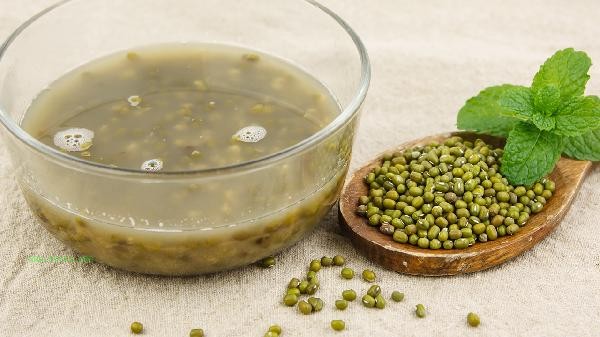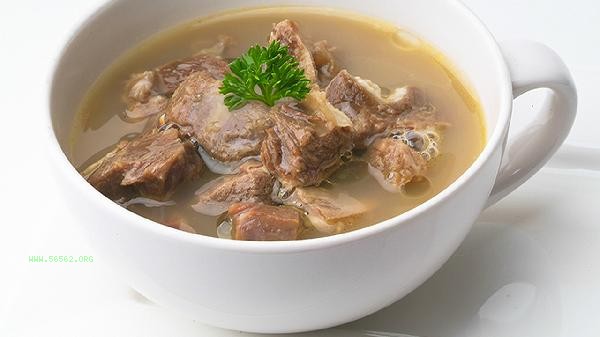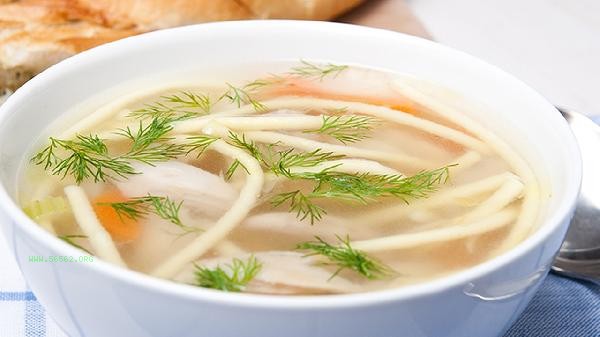The unsavory Noodles in soup may be caused by insufficient seasoning, improper matching of ingredients, too short cooking time, poor ability of noodles to absorb soup, poor control of heat, etc. It can be improved by adjusting the seasoning proportion, optimizing the combination of ingredients, extending the cooking time, changing the types of noodles, and mastering the cooking heat.

1. Insufficient seasoning
The taste of Noodles in soup is weak, often due to lack of salt or flavor substances. Basic seasoning should ensure a moderate amount of salt, and can be paired with fermented seasonings such as soy sauce and fish sauce to enhance the layering. If using broth or bone broth as the base, avoid adding salt repeatedly to prevent excessive saltiness. When the freshness is insufficient, a small amount of shiitake mushrooms, dried scallops, or monosodium glutamate can be added to enhance the flavor, but attention should be paid to controlling sodium intake.
2. Improper combination of ingredients
The combination of ingredients affects the fusion of soup base flavor. For meat soup, it is recommended to choose raw materials rich in collagen such as chicken and pig bones. For vegetarian soup, it can be paired with mushrooms and root vegetables. Avoid using too many conflicting ingredients at the same time, such as seafood and lamb, which can easily produce a fishy smell when cooked together. The use of spices should be moderate, as excessive amounts of star anise, cinnamon, and other spices can mask the true flavor of the soup.
3. The boiling time is too short.
The release of flavor substances from the bottom of the soup requires sufficient heat. Animal based ingredients need to be stewed for at least 2 hours to fully dissolve amino acids, while fish soup can be shortened to 40 minutes. Using a pressure cooker can accelerate the cooking process, but the flavor level may not be as good as simmering over low heat. It is recommended to stir fry the ingredients until fragrant before stewing with water to shorten the cooking time and enhance the aroma.

4. Poor soup absorption ability of noodles
The texture of noodles directly affects the flavor effect. Noodles with high density such as alkaline water surface and egg noodles absorb soup slowly. It is recommended to boil them until they are 80% cooked and then simmer them together with the soup. Buckwheat noodles, udon noodles and other coarse noodles need to be soaked for an extended period of time. Adding a small amount of salt or oil to the water when cooking noodles can reduce surface starch gelatinization and enhance soup adsorption.
5. Poor control of heat
The heat throughout the cooking process affects flavor penetration. In the initial stage of boiling soup, it is necessary to boil it over high heat and skim the foam. In the later stage, reduce the heat and simmer slowly. After adding noodles to the soup, keep them in a slightly boiling state to avoid severe boiling that may cause separation of the soup oil. Using a well insulated clay pot or enamel pot can help distribute the temperature evenly and allow the flavor to better penetrate the noodles.

The cooking process needs to be adjusted systematically to improve the flavor of Noodles in soup. Choose fresh ingredients and preprocess them to remove fishy smell. Season the soup in stages during boiling, and promptly supercool the noodles to maintain elasticity after cooking. Add fragrant ingredients such as scallions, minced garlic, and chili oil before consumption, and adjust the ratio of sour, spicy, salty, and fresh according to personal taste. Long term dietary recommendations include controlling heavy oil and salt, and using natural umami substances such as mushrooms and tomatoes to replace some seasonings, balancing health and deliciousness.








Comments (0)
Leave a Comment
No comments yet
Be the first to share your thoughts!